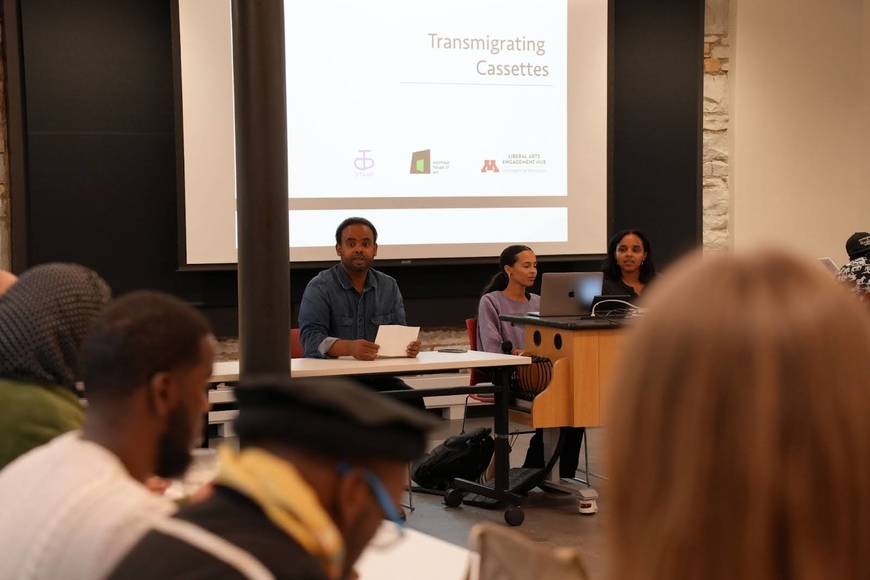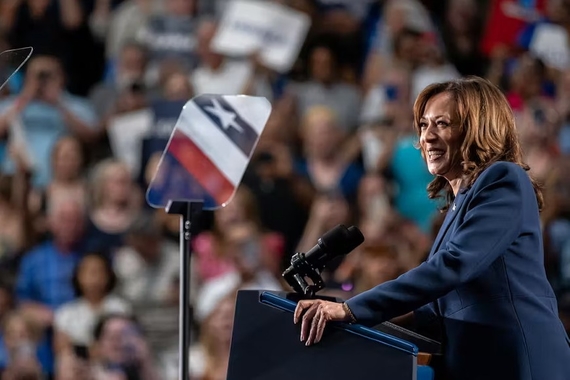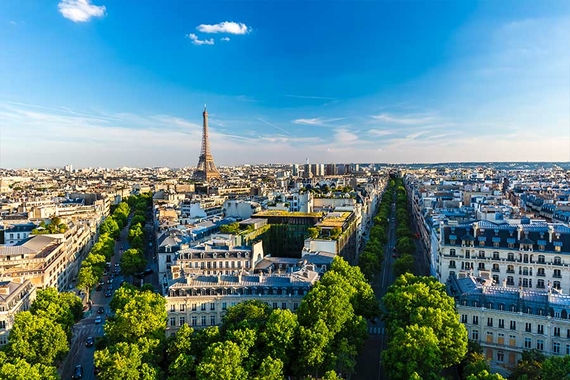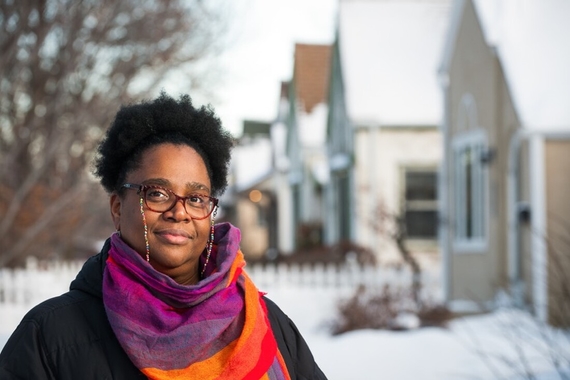Announcing our 2024-25 Liberal Arts Engagement Hub Residencies
CLA's work does not end at the borders of our campus. As the heart of Minnesota's flagship university, our work is deeply connected to multiple communities, including those who study with us, those who support us, and those who occupy spaces, both physical and theoretical, with us. Check out our 2024-25 Liberal Arts Engagement Hub Residencies and learn how these vital partnerships are deepening our culture of engagement with the community.
Chicano Latino Studies High School Leadership Program
The University of Minnesota's Department of Chicano & Latino Studies (CLS) and NewPrensa, a leading Twin Cities media outlet focusing on BIPOC and immigrant communities, are collaborating on a program for high school students. The CLS High School Leadership Certificate Program empowers 20 Latino students from El Colegio High School and the Latinos Unidos program of the White Bear Lake Area School District.
The program centers on individual, family, and community identities as a source of strength and resilience. Through mentorship, creative expression, and public media, students will develop academic writing skills, foster personal growth, and explore their cultural identity. Students have the freedom to choose their preferred medium of expression, ranging from writing and photography to video and art. Their work will be celebrated in a special edition newsletter and magazine, showcasing their grounding in identity, cultural pride, and personal expression of individual and community agency.
Students will also have the chance to engage in leadership opportunities, connect with Latine leaders in Minnesota, and access college resources. By exploring themes of gender, sexuality, solidarity, and more, the program aims to connect students with local and diverse communities, developing and strengthening their understanding of the power of working together. This program fosters not only self-discovery but also leadership skills and a deeper connection to the community.
Project Partners:
- Lisa Sass Zaragoza, Outreach Coordinator, Chicano and Latino Studies
- Isabella Silva-Biotti, Editor and Writer, NewPrensa; Lead Communications Specialist, NewPublica
- Briana Santoscoy, Student, Family, and Community Engagement Coordinator and Latinos Unidos Lead, White Bear Lake Area Schools
- Katie Avina, Executive Director, El Colegio High School
The Long Fire at Lake and Minnehaha
“The Long Fire at Lake and Minnehaha'' is a collaborative, community-based public history project which explores the longer, queerer, history of the intersection surrounding the Minneapolis Police Department’s Third Precinct, at the corner of Lake Street and Minnehaha. The intersection came to widespread public attention when the Third Precinct burned during the 2020 Uprising following the police murder of George Floyd, and its future remains a site of contentious community debate and activism.
This intersection holds a more complex history that well predates 2020, a history that helps illuminate the critical intersectionality often missing from coverage of “defund the police” activism. From an anti-porn campaign in the 1980s led by Andrea Dwokin and Catherine McKinnon, which shaped local discourses around sex work, safety, and public space for more than a generation, to a 1998 encampment protesting the expansion of the adjacent highway through sacred Dakota land, which was broken up by six hundred Minneapolis police officers - an action which was, at the time, the largest show of police force in Minnesota history. And a decade later, just steps from the third precinct, CeCe McDonald, a Black trans woman, was brutally attacked, setting off a local and national activist solidarity campaign that profoundly impacted the national trans movement, and which continues to resonate locally in community responses to continued anti-trans violence at that intersection.
These events are connected by more than geography: they illustrate the interconnected systems of power that are at stake in struggles over who “belongs'' in public space and to whom public space belongs. This public history project emerges from a collaboration between academics, community members, and activist organizations to uncover the layers of history at the Lake/Minnehaha intersection. Using oral histories gathered by community members, supported by the Tretter Trans Oral History Poject’s community cohort model and contextualized by archival research, this project will culminate in both a digital mapping exhibit and a community teach-back. It intends to document and theorize both the history of this intersection and the relationship between police violence, colonialism, racial capitalism, and transphobia. We hope that this collaborative reckoning with the complex history of this intersection can help support and inform the ongoing debates over the meaning of “public safety,” and advance the power of community to shape and enact shared visions of common thriving.
Project Partners:
- Myrl Beam, Associate Professor and Chair, Women’s, Gender, and Sexuality Studies, Macalester College
- Aiden Bettine, Curator, Tretter Collection in GLBT Studies; Program Affiliate, Heritage Studies and Public History
- Myra Billund-Phibbs, PhD Candidate, History
- Ayaan Natala, PhD Candidate, American Studies
- Jae Yates, Oral Historian, Tretter Transgender Oral History Project
Parental Incarceration and Human Rights
International laws call for the best interests of children to be considered at every stage of a parent’s involvement in a criminal legal process. Yet in the United States, as well as in many other countries, children are largely invisible when courts determine whether their parents will be incarcerated. This Hub residency will focus on how legal systems violate children’s human rights by not considering their best interests in such cases, and how promising alternatives to parental incarceration can be implemented in Minnesota and beyond.
This project is a collaboration between the University of Minnesota’s Human Rights Program and nonprofit Children of Incarcerated Caregivers. It will consist of a two-semester University of Minnesota seminar, interactive monthly workshops, and a symposium to be held in May 2025. The workshops will convene community partners, people with lived experience, and academic experts to explore proposals and ideas. Throughout the year, students will develop policy alternatives to parental incarceration and will present these alternatives to local decision-makers—potentially bringing real change to Minnesota.
Quilting Stories: Remapping Twin Cities Narratives with Black Elders and Ecuadorian Migrants
“Quilting Stories” nurtures two new strands in a broader “Truth Telling” initiative crafted by Million Artist Movement (MAM) and Speaking Out Collective (SOC). The project expands on oral histories shared by local Black elders and on storytelling workshops with Indigenous Ecuadorian elementary school students. We bring together personal stories with broader scholarly framings to make Black Twin Cities history more visible and to nuance polarizing migration narratives. Both initiatives remap Twin Cities histories from the perspectives of underrepresented BIPOC communities and build on SOC’s prior Truth Telling initiative with local Dakota and Anishinaabe partners to develop K-12 curriculum rooted in Indigenous ways of knowing.
In this new phase of the project, we will expand, amplify, and archive the interviews and stories. We plan to host an event in Fall 2024 with playwright Lester Mayers, who crafted a play, co-commissioned by MAM and Pillsbury House + Theater, drawing on the oral histories which focused on the 1969 Morrill Hall takeover. We will additionally commission a multimedia video that would combine Black oral histories, artwork, music/songs, and images to map historical events centering Black narratives that will premiere at The Hub in spring 2025. These events include the destruction of Black neighborhoods via the construction of highways, the formation of Black arts-based community centers, and the student activist movement that led to the creation of an African American Studies department at UMN. We will also continue storytelling workshops with Ecuadorian migrant students and their families. We plan to weave a “quilt” of stories that offers a range of perspectives on the migration experience from children and adults, as well as experts in the political economic systems that fuel migration.
Project Partners:
- Maria Asp, Director of Education and Community Engagement, Speaking Out Collective (SOC); Co-Founder, Million Artist Movement (MAM)
- Sonja Kuftinec, Professor, Theatre Arts & Dance; Board President, SOC
- Sonja Baute, Executive Director, SOC
- Signe Harriday, Senior Producing Artistic Director, Pillsbury House + Theatre; Co-Founder, MAM
- Patty Lacy, Black Community Leader and Vocalist, MAM
- Laura Man Hill, Teaching Artist and Story Gatherer, SOC and MAM
- Liliane Sojos-Ortiz, Ecuadorian UMN Student; Intern, SOC
- Michele Waslin, Interim Director, Immigration History Research Center (IHRC)
- Ellen Holt-Werle, Institutional Archivist, University Archives
This residency is supported by the Immigration History Research Center.
The ReEntry Lab
Justice-impacted artists face an array of obstacles to participation in a range of social spheres and activities even after they are released from prison. The ReEntry Lab – an organization designed to explore opportunities for connection between justice-impacted artists and the thriving network of literary organizations and institutions in Minnesota – will use their Hub residency to create an intentional, supportive space for justice-impacted artists to convene with one another and with members of the University of Minnesota community in order to help them navigate the difficult experience of post-incarceration.
This project, in partnership with the Department of English, will include three components. First, the ReEntry Lab will facilitate a monthly writing “workshop” that will be accessible to justice-impacted writers. Second, The ReEntry Lab will facilitate exchanges between justice-impacted artists and other faculty, departments, and programs within the College of Liberal Arts, many of which are focusing explicitly on criminal justice, the carceral system, and the social practices that marginalize and exclude the justice-impacted community. Third, The ReEntry Lab will facilitate a public reading at the end of the project period, in which justice-impacted writers will have the opportunity to share their work with a broad audience.
The UMN HMong Corpus Project: Building a Free Searchable Web-based Annotated Corpus of the HMong Language
The UMN HMong Corpus project is building an open-source, web-based resource in the form of a searchable, annotated HMong language corpus (database) to support linguistic research and the teaching and learning of the HMong language. The corpus will support efforts to describe and analyze the HMong language and provide valuable materials that language teachers and learners can utilize to improve education efforts. As a low-resource language lacking data for machine learning, the corpus will also provide valuable data that AI can use to build technology resources for HMong.
During the residency period, the UMN HMong Corpus project team will begin a new partnership with the Hmong Cultural Center (HCC). Dr. Mark Pfeifer from the HCC will serve as a project consultant and will connect project members with resources from the Hmong Resource Center Library housed in the HCC, which holds approximately 200 books printed in the HMong language.
Project Partners:
- Dr. Hooi Ling Soh, Professor, Institute of Linguistics
- Dr. Mark E. Pfeifer, Director of Programs and Development, Hmong Cultural Center
- Neng Vang, Individual Community Partner/Linguistics MA Student, Institute of Linguistics
- Choua Vang, Individual Community Partner
- Gilly Guo, 2023 Graduate of Linguistics and Computer Science Undergraduate Programs, UMN
- Andrew Herold, Computer Science Undergraduate, Mankato State University
- Dr. Mai Al-Khatib, 2023 Graduate of Cognitive Science Ph.D. Program, UMN
Voicing Resistance: A Youth-led Media Production Project
Listen Up Youth Radio is a social enterprise nonprofit led by youth-adult partnership, empowering youth to create their own media, develop production skills, and learn critical media literacy. Through our residency at The Hub, our Youth Media Collective (YMC) Member Producers, in collaboration with Dr. Laura Garbes (sociology), will make use of the University's expertise and resources to partner with students and faculty on a special season of our podcast YouthSoup. This season, called “Voicing Resistance,” will be an in-depth exploration of how communities voice resistance through poetry, song, and other forms of vocal expression.
YMC Member Producers (ages 14-22 and primarily self-identifying as BIPOC and/or LGBTQIA+) are excited to explore themes of protest songs, oral histories, spoken word, dance/movement, and radio as forms and sites of cultural resistance, and to reflect on their own practices as fledgling media makers. This project takes vocal expression and art seriously as a mode of resistance. We aim to amplify community stories and histories of resistance, with a focus on counternarratives - voices of protestors that are not often placed at the center of dominant media narratives. Episodes will be available on our website and major podcast platforms, as well as broadcast through our partnerships with low-power FM radio stations and community television channels.
Women’s Voices: Lifting the Veil of Confusion
“Women’s Voices” explores how single narratives about a people, nation, or group creates such a narrow perception of cultures. In the United States, the various single narratives about Iranian women include the following:
-
Women have never had agency or any rights in Iran.
-
Iranian women have had no rights, and “we” need to save them.
-
Iranian women don't work outside of the home and aren't allowed to work.
-
Iranian women wear a hijab.
-
Iranian women are trapped and what a pity!
This project, led by Sima Shahriar and Dr. Ana Forcinito (Spanish and Portuguese studies), seeks to break such simple narratives by showing five or more films made by Iranian women. Since its inception, film has been one of the most powerful mediums in shaping our thoughts, and it remains an art form that is accessible to most people. In a short period of time, the audience can be offered new insights into complex subjects and be challenged to examine their own “well-formed thoughts” based on their limited knowledge.
The films we will view delve into nuances of women’s histories and present lives and experiences in Iran and shed light on the challenges faced by Iranians in diaspora. We will examine why there are so few Iranian female voices, commentaries, and analyses present in popular culture, despite the vast accomplishments in the arts that they may have. We will interrogate why, after 45 years of Western media’s laser-like and hostile focus on Iran as a nation, the majority of Americans believe Iranian women have always been oppressed. And we will explore stories that depict women all over the world who are architects, community builders, and connectors, yet most often unsupported and left at the mercy of false narratives.
This project aims to bring many diverse, perhaps seemingly disparate, groups together—including students from multiple campuses, professors, residents, families, book lovers, and film lovers—with the intended outcome of empowering a community with knowledge that equips it to ask more thoughtful questions, think critically, dig deeper, ignite cultural curiosity, and spread understanding when prompted with divisive narratives that an entire nation and its people are either good or bad.
For more information about Hub residencies, please contact liberalartshub@umn.edu.



